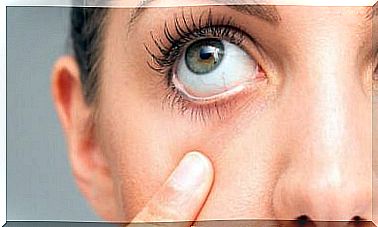Main Causes Of Ear Infection
The causes of ear infection are mainly associated with germs that penetrate this organ, reproduce and begin to cause difficulties. It is a very common disease, which sometimes goes unnoticed, but it can also get complicated.
Ear infections are not contagious. However, if someone has the flu and passes it on to you, this could eventually trigger an ear problem. Some of these infections clear up on their own, but others do not.
The important thing is to be very attentive to strange symptoms in the ear. Any unusual sensations, such as buzzing, pressure, pain or discomfort should be consulted with the doctor. A satisfactory solution depends on early diagnosis.
Types of infection
Generally speaking, an ear infection is said to occur when the area of the middle ear, which is behind the eardrum, fills with fluid and becomes inflamed. This is called otitis media and it is the most common form of this type of disease.
In principle, the two main types of ear infection are acute and chronic. Acute infection is the most common. It is characterized by a rapid and painful development, of short duration. The chronic infection, on the other hand, persists and does not heal.
Chronic infection can lead to permanent ear damage. Many times it has to do with the presence of a hole in the eardrum, which refuses to heal. There is also the so-called “otitis with effusion”. In it there is inflammation, but no infection.
Read also: Tips for having natural ears
Main causes of ear infection
As noted, the main causes of ear infection have to do with penetration of germs. These are usually viruses and bacteria that enter the ear, through the mouth and nose.
Another cause of ear infection is excessive smoke or the presence of allergies. Sometimes the accumulation of wax also causes a plug to form and this causes discomfort in the middle ear. Also excess mucus or saliva, or colds.
In reality, the causes of ear infection can be many. It occurs because the eustachian tube is blocked and this leads to an accumulation of fluid in the middle ear. Remember that this tube is what allows the fluid produced in the ear to drain. It goes from the middle of the ear to the throat.
Other important aspects
Children are frequent victims of ear infections. This is because their auditory system is not fully developed yet and that several of their routine activities configure risk factors for acquiring the disease.
The causes of ear infection in children are the same as in adults. However, they are exposed to several risk factors such as :
- Attendance at daycare. Children do not take very strict hygiene measures in contact with other children and colds and viruses are easily transmitted.
- When they were not breastfed. Children who did not receive breast milk are more likely to develop ear infections.
- The use of the bottle. When children spend a lot of time drinking liquid, while lying on their back, it makes it easier for the liquid to pass into the ear. This can lead to an infection.
Take a look at the following information: Earache in children
Complications and prognosis
It can be said that most ear infections disappear without leaving any sequelae. Many are overcome even naturally, without having to use specific medications or treatments. When the infection becomes recurrent and chronic, some complications may appear such as the following:
- Hearing loss. It is normal for hearing to decrease during the course of the infection. But when it becomes chronic, hearing can permanently decrease, and even cause damage to the eardrum leading to deafness.
- Tears in the eardrum. The eardrum can rupture due to an ear infection. Sometimes it heals spontaneously, but sometimes it requires surgery.
- Spread of infection. The infection can spread to nearby tissues and give rise to pus-filled cysts, mainly behind the ear. Although it rarely happens, they can also spread to the brain.
The prognosis is good in an acute ear infection. It usually heals without major problem. In a chronic infection, medical treatment must be applied. Only in very rare cases does it cause permanent effects.









